Syndecan-3 is selectively pro-inflammatory in the joint and contributes to antigen-induced arthritis in mice, Arthritis Research & Therapy
Por um escritor misterioso
Last updated 28 março 2025
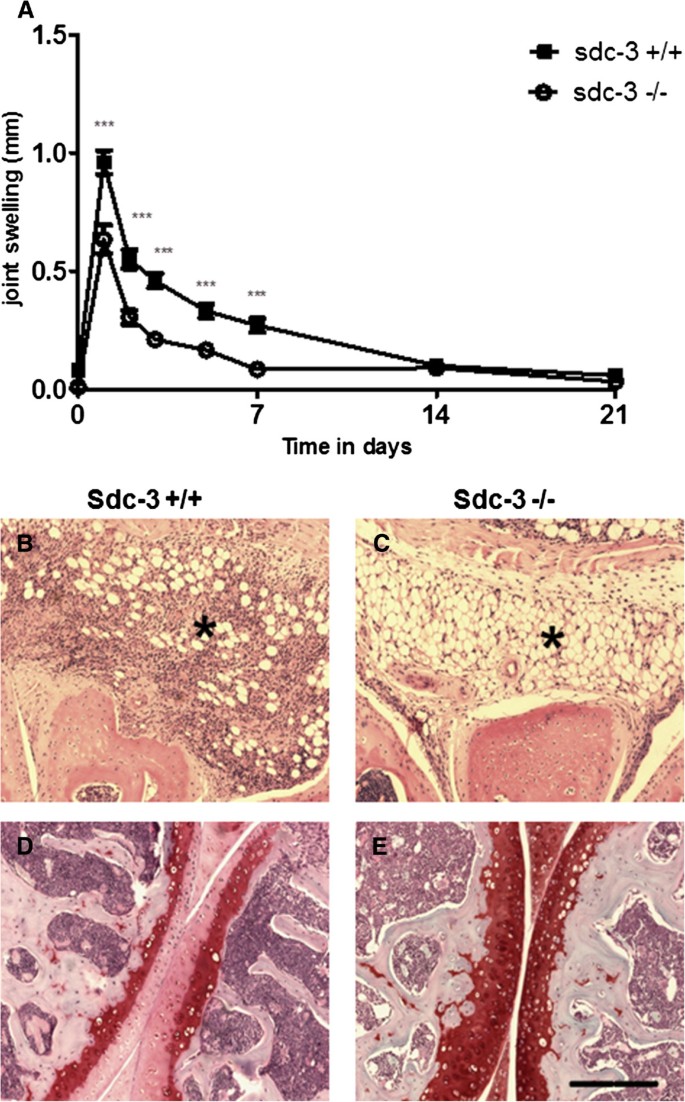
Introduction Syndecans are heparan sulphate proteoglycans expressed by endothelial cells. Syndecan-3 is expressed by synovial endothelial cells of rheumatoid arthritis (RA) patients where it binds chemokines, suggesting a role in leukocyte trafficking. The objective of the current study was to examine the function of syndecan-3 in joint inflammation by genetic deletion in mice and compare with other tissues. Methods Chemokine C-X-C ligand 1 (CXCL1) was injected in the joints of syndecan-3−/−and wild-type mice and antigen-induced arthritis performed. For comparison chemokine was administered in the skin and cremaster muscle. Intravital microscopy was performed in the cremaster muscle. Results Administration of CXCL1 in knee joints of syndecan-3−/−mice resulted in reduced neutrophil accumulation compared to wild type. This was associated with diminished presence of CXCL1 at the luminal surface of synovial endothelial cells where this chemokine clustered and bound to heparan sulphate. Furthermore, in the arthritis model syndecan-3 deletion led to reduced joint swelling, leukocyte accumulation, cartilage degradation and overall disease severity. Conversely, CXCL1 administration in the skin of syndecan-3 null mice provoked increased neutrophil recruitment and was associated with elevated luminal expression of E-selectin by dermal endothelial cells. Similarly in the cremaster, intravital microscopy showed increased numbers of leukocytes adhering and rolling in venules in syndecan-3−/−mice in response to CXCL1 or tumour necrosis factor alpha. Conclusions This study shows a novel role for syndecan-3 in inflammation. In the joint it is selectively pro-inflammatory, functioning in endothelial chemokine presentation and leukocyte recruitment and cartilage damage in an RA model. Conversely, in skin and cremaster it is anti-inflammatory.

Replenishing decoy extracellular vesicles inhibits phenotype remodeling of tissue-resident cells in inflammation-driven arthritis - ScienceDirect
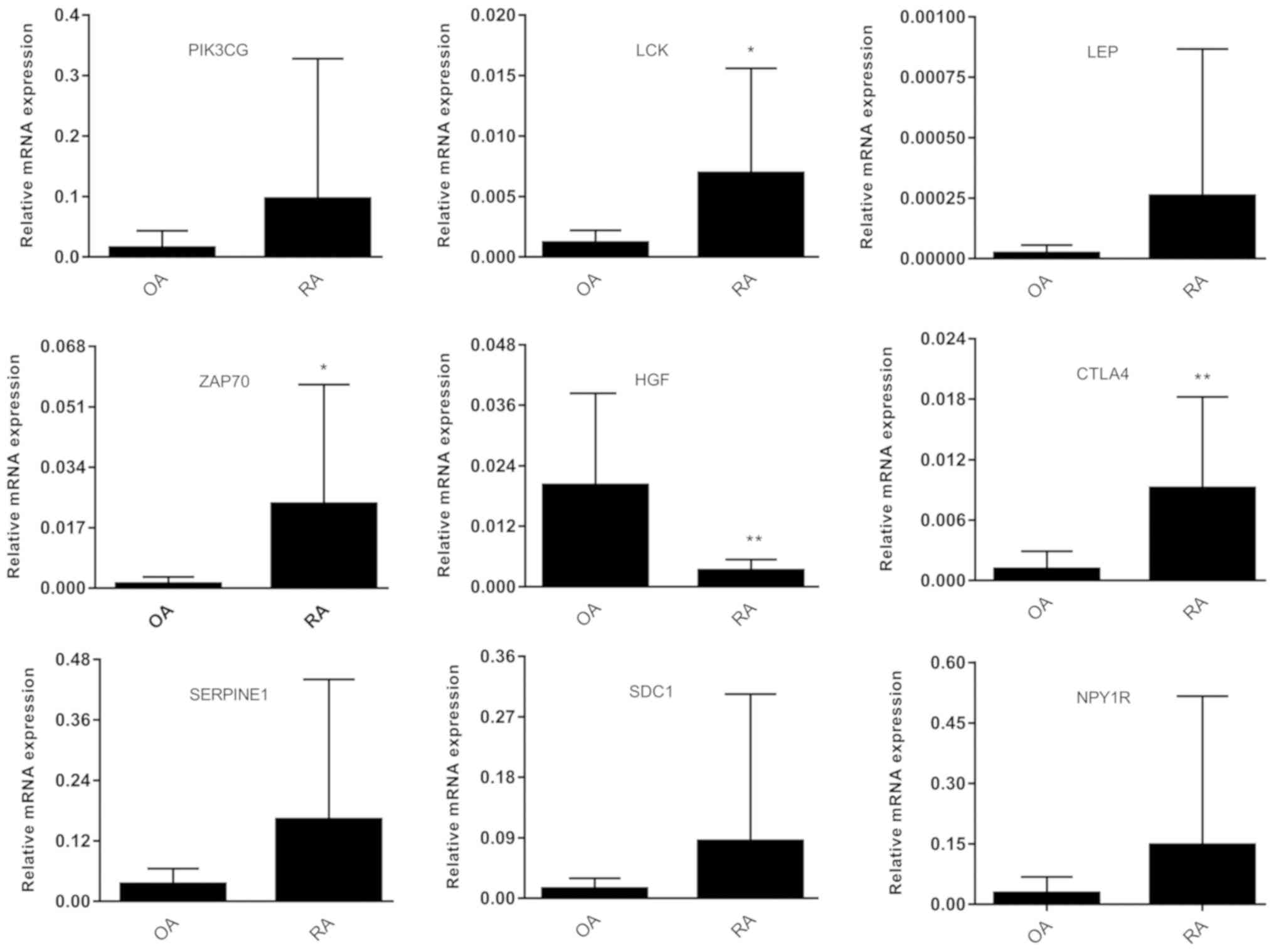
Identification of pivotal genes and pathways in the synovial tissue of patients with rheumatoid arthritis and osteoarthritis through integrated bioinformatic analysis

Matrix metalloproteinase‐9 mediated shedding of syndecan‐4 in glomerular endothelial cells - Reine - 2019 - Microcirculation - Wiley Online Library
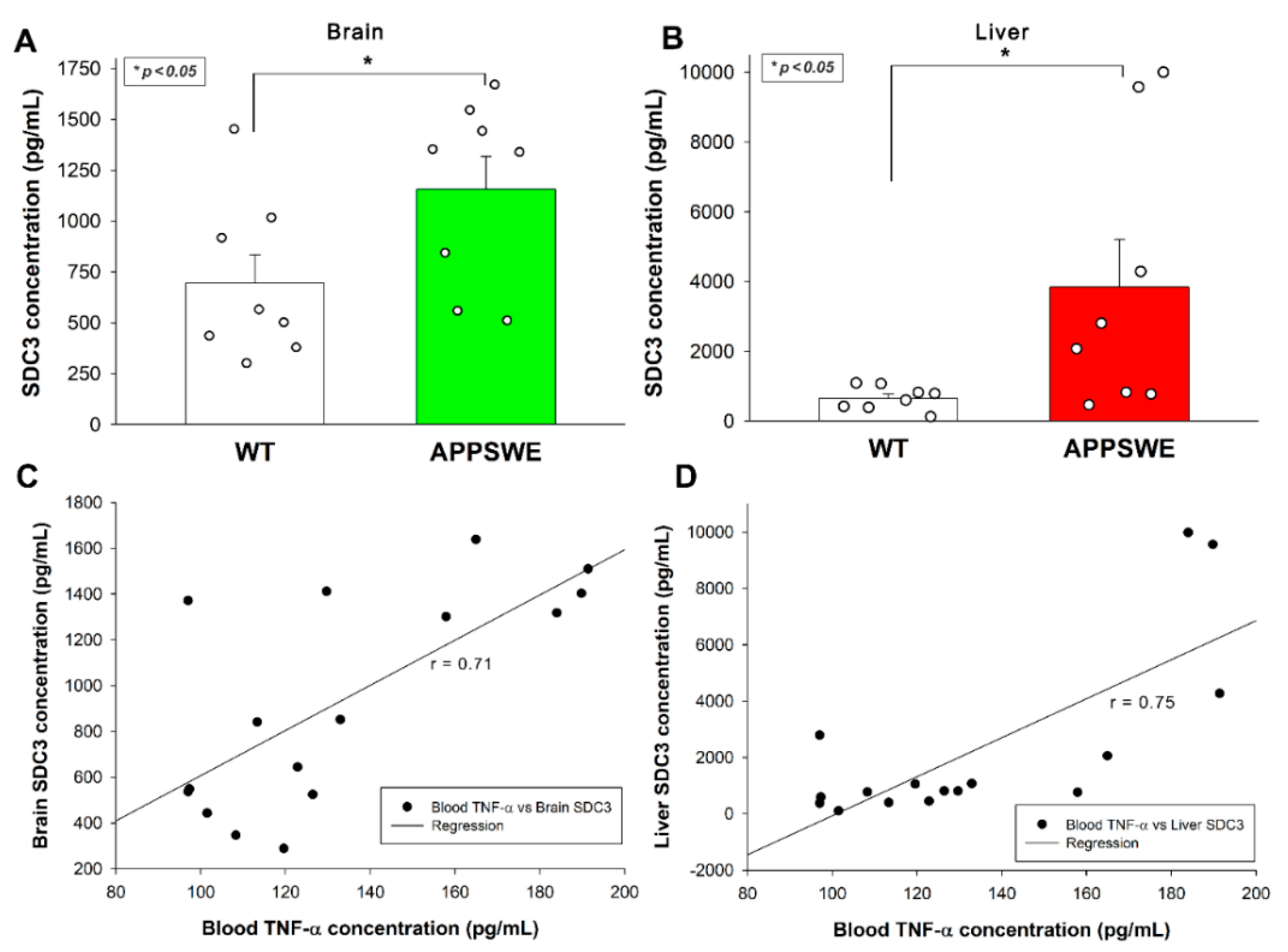
IJMS, Free Full-Text

Exploiting CD22 To Selectively Tolerize Autoantibody Producing B-Cells in Rheumatoid Arthritis

Immunomodulation of Interleukin-34 and its Potential Significance as a Disease Biomarker and Therapeutic Target
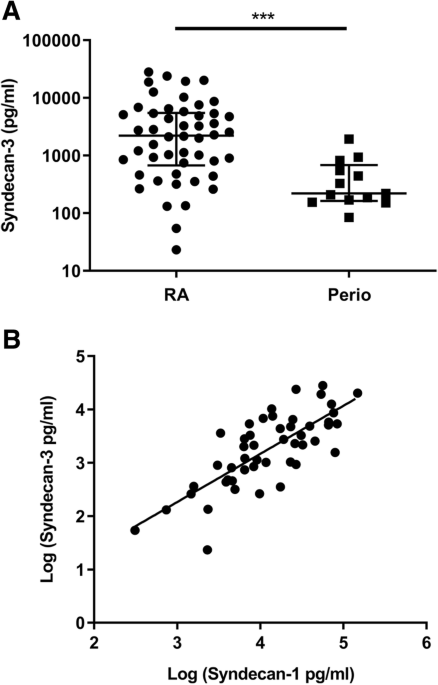
Soluble syndecan-3 binds chemokines, reduces leukocyte migration in vitro and ameliorates disease severity in models of rheumatoid arthritis, Arthritis Research & Therapy

Synoviocyte-targeted therapy synergizes with TNF inhibition in arthritis reversal

PDF) Syndecan-3 is selectively pro-inflammatory in the joint and contributes to antigen-induced arthritis in mice

PDF) An approach to the analysis of gene expression in chronically activated T Lymphocytes
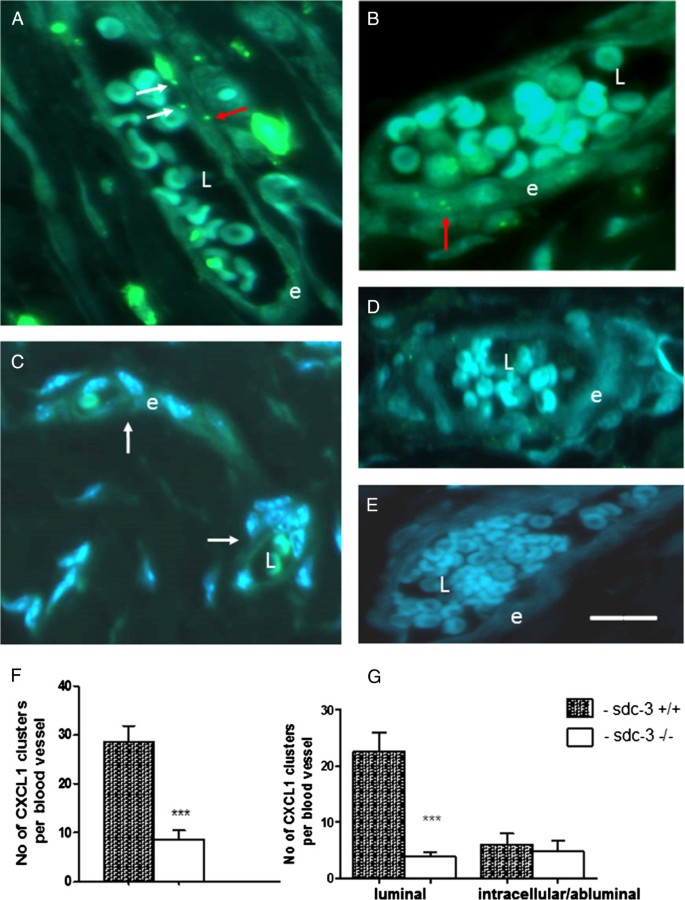
Syndecan-3 is selectively pro-inflammatory in the joint and contributes to antigen-induced arthritis in mice, Arthritis Research & Therapy
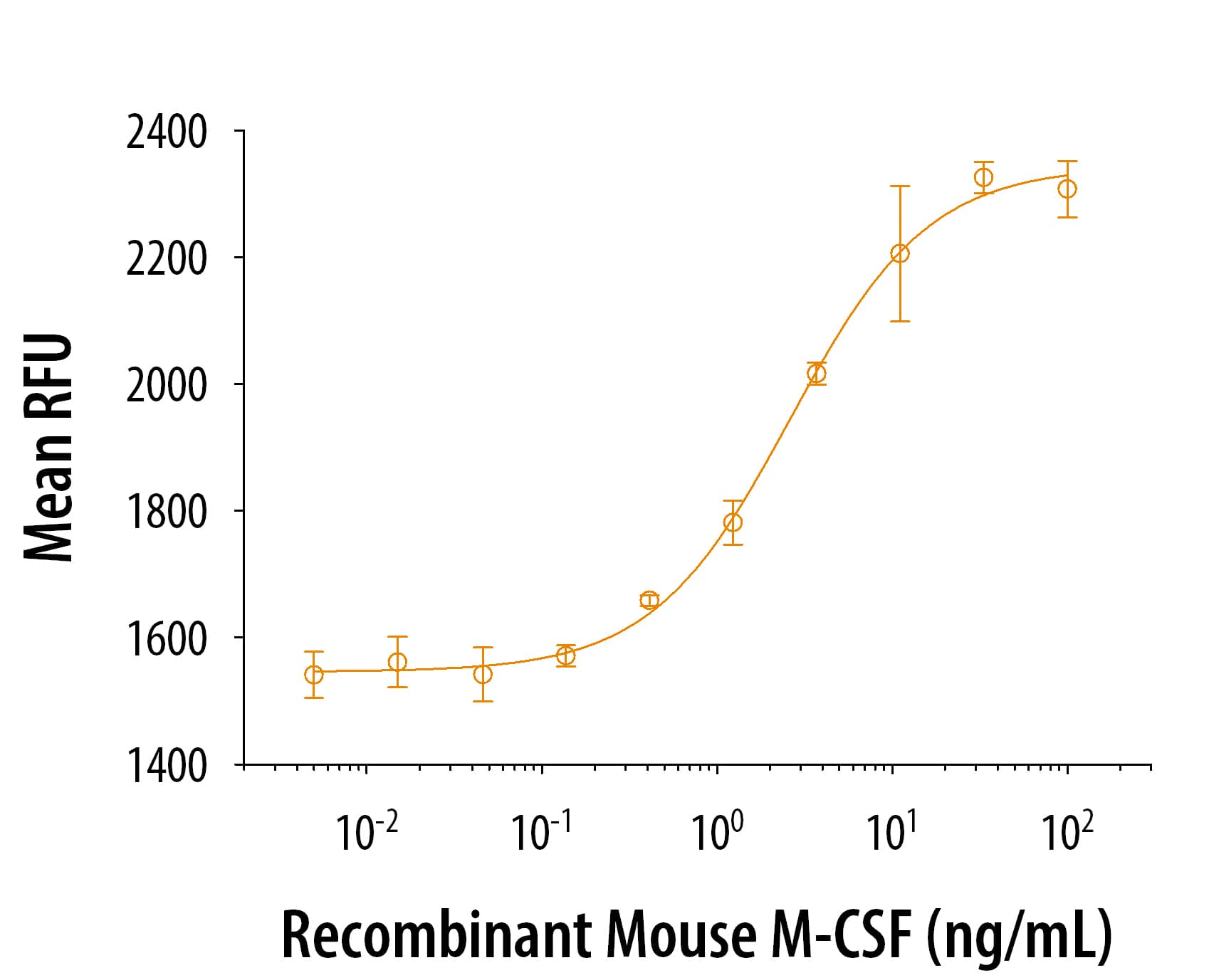
Recombinant Mouse M-CSF Protein (416-ML)
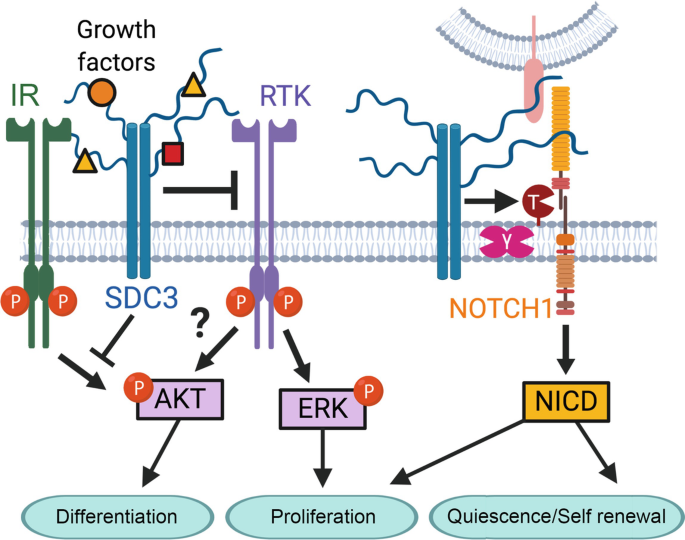
Syndecan-3: A Signaling Conductor in the Musculoskeletal System

Arthritis Research & Therapy 1/2019
Recomendado para você
-
 Most Disturbed Person on Planet Earth III (2019) - IMDb28 março 2025
Most Disturbed Person on Planet Earth III (2019) - IMDb28 março 2025 -
 Dead Zone Seasons 1 & 2 Base Card Set 100 Cards28 março 2025
Dead Zone Seasons 1 & 2 Base Card Set 100 Cards28 março 2025 -
 New additions to my collection : r/MondoGore28 março 2025
New additions to my collection : r/MondoGore28 março 2025 -
Parte 2 ⚠️#mdpope, Mdpope 1 To 328 março 2025
-
![NSFW] Death Films Iceberg : r/IcebergCharts](https://i.redd.it/fqj64ylb8ty61.jpg) NSFW] Death Films Iceberg : r/IcebergCharts28 março 2025
NSFW] Death Films Iceberg : r/IcebergCharts28 março 2025 -
mdpope 1 explain|TikTok Search28 março 2025
-
MDPOPE Radio - playlist by Spotify28 março 2025
-
 No AU - MDPOPE Sans by MushroomSer333 on DeviantArt28 março 2025
No AU - MDPOPE Sans by MushroomSer333 on DeviantArt28 março 2025 -
 L'Auberge Espagnole - 2 DVD - Romain Duris - Cecile Of France - Judith Godrèche28 março 2025
L'Auberge Espagnole - 2 DVD - Romain Duris - Cecile Of France - Judith Godrèche28 março 2025 -
 Insect Infestation Increases Viscosity of Biogenic Secondary Organic Aerosol28 março 2025
Insect Infestation Increases Viscosity of Biogenic Secondary Organic Aerosol28 março 2025
você pode gostar
-
 25cm Pokemon Charizard Xy Mega Evolution Plush Toy Kawaii Cartoon28 março 2025
25cm Pokemon Charizard Xy Mega Evolution Plush Toy Kawaii Cartoon28 março 2025 -
 Bubble histórias - Wattpad28 março 2025
Bubble histórias - Wattpad28 março 2025 -
 Small Solid Brass Staunton Chess Set by Italfama28 março 2025
Small Solid Brass Staunton Chess Set by Italfama28 março 2025 -
![Tutorial] Using M9 and M1014 in Survival : r/mw3](https://i.imgur.com/gI3vRlw.png) Tutorial] Using M9 and M1014 in Survival : r/mw328 março 2025
Tutorial] Using M9 and M1014 in Survival : r/mw328 março 2025 -
 BLUE LOCK EP 07 LEGENDADO PT-BR - DATA E HORA28 março 2025
BLUE LOCK EP 07 LEGENDADO PT-BR - DATA E HORA28 março 2025 -
 Sinario - Single - Album by Kareem Khaled Skaar - Apple Music28 março 2025
Sinario - Single - Album by Kareem Khaled Skaar - Apple Music28 março 2025 -
![Ginkgøsan] Heimdall lost his cool and went right into Kratos's](https://i.redd.it/6hkqjsybyjaa1.jpg) Ginkgøsan] Heimdall lost his cool and went right into Kratos's28 março 2025
Ginkgøsan] Heimdall lost his cool and went right into Kratos's28 março 2025 -
 Minecraft - Fazendo a Nossa Festa28 março 2025
Minecraft - Fazendo a Nossa Festa28 março 2025 -
 Forever 21 Billboard, Times Square28 março 2025
Forever 21 Billboard, Times Square28 março 2025 -
![Play Free Solitaire Games Online [NO DOWNLOAD]](https://kevin.games/assets/images/tags/solitaire.jpg) Play Free Solitaire Games Online [NO DOWNLOAD]28 março 2025
Play Free Solitaire Games Online [NO DOWNLOAD]28 março 2025


